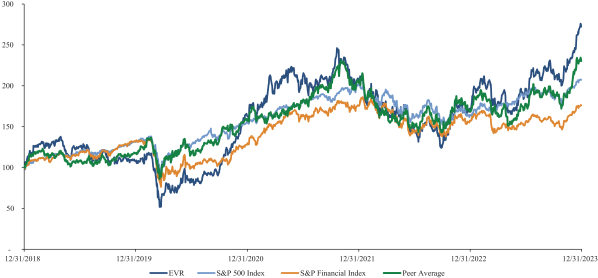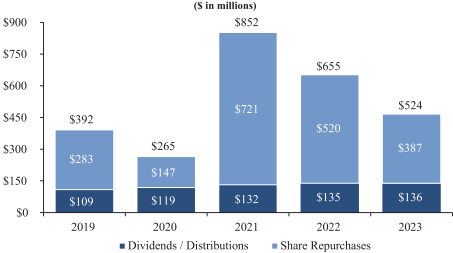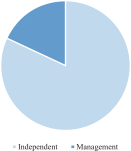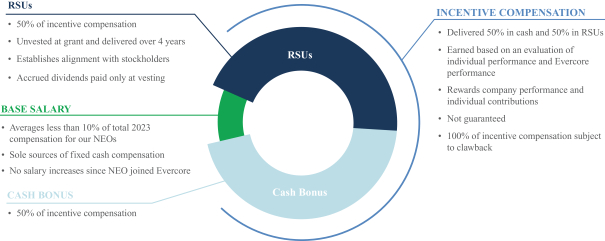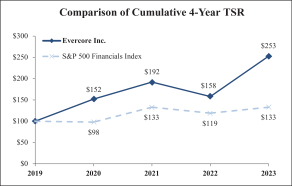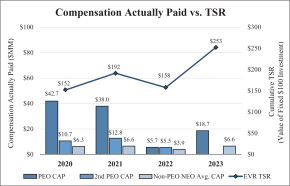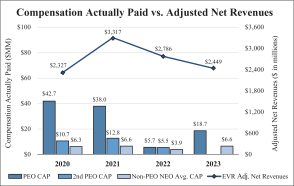amounts become payable to Mr. Altman), (2) any diminution in Mr. Altman’s title or authority with us, (3) our failure to provide Mr. Altman with the employee benefits or perquisites provided for in the employment agreement, or (4) the failure to re-elect him as a member of the Board.
In the event of a termination of Mr. Altman’s employment which is not a qualifying termination or a termination due to his death or disability (including if Mr. Altman resigns without good reason), Mr. Altman would be entitled to receive any “accrued rights” (as defined above).
Mr. Altman has also entered into confidentiality, non-solicitation and proprietary information agreements with us. Pursuant to these agreements, he is subject to a covenant not to (1) compete with us while employed and for 24 months following his termination of employment for any reason and (2) solicit our employees, consultants and certain actual and prospective clients while employed and for 12 months following his termination of employment for any reason, in each case, subject to certain specified exclusions.
If a dispute arises out of the employment agreement with Mr. Altman, we would pay his reasonable legal fees and expenses incurred in connection with such dispute if he prevails on substantially all issues in dispute.
In addition, if payments or benefits provided to Mr. Altman under an employment agreement or any other plan or agreement in connection with a change in control result in an “excess parachute payment” excise tax being imposed on him, he would be entitled to a gross-up payment equal to the amount of the excise tax, as well as the excise tax and income tax on the gross-up payment.
Employment Agreement with Mr. Weinberg
We entered into an employment agreement with Mr. Weinberg, the initial term of which expired on March 1, 2023. Mr. Weinberg continues to be employed by us as an at-will employee.
Pursuant to his employment agreement, Mr. Weinberg received an initial sign-on restricted cash award with a target payment amount of $35 million, of which $11 million vested on March 1, 2019, $6 million vested on each of March 1, 2020, March 1, 2021, March 1, 2022, and March 1, 2023, subject to Mr. Weinberg’s continued employment through each such vesting date except as noted below. The Compensation Committee has discretion to increase or decrease the amount payable on each vesting date based on performance criteria to be discussed with Mr. Weinberg and determined by the Compensation Committee at least annually. The Compensation Committee may not, however, without Mr. Weinberg’s consent, increase the amount payable on any applicable vesting date to more than 200% of the target amount or decrease the amount payable by more than 25% of the target amount. The Compensation Committee determined not to increase or decrease the $11 million that vested on March 1, 2019, the $6 million that vested on each of March 1, 2020, 2021, 2022, and 2023. In the event of a “change in control” (as defined in the 2016 Plan), the initial cash award would have vested in full at the target payment amount.
In addition to the foregoing, Mr. Weinberg will be entitled to participate in all Company employee benefit programs on terms no less favorable than other executive officers of the Company.
Mr. Weinberg’s employment agreement further provides that if Mr. Weinberg’s employment is terminated by us without “cause,” by Mr. Weinberg for “good reason” or as a result of death or “disability” (each as defined in the employment agreement), then, subject to his execution, delivery and non-revocation of a release of claims with respect to the Company and its affiliates, Mr. Weinberg will be entitled to receive, in addition to certain accrued rights, (i) to the extent not already vested, full vesting of his initial RSU award (the final tranche of which vested by their terms in 2022, as described below); (ii) to the extent not already vested and paid, full vesting of his initial cash award, paid in accordance with the original payment schedule with the Company to determine in good faith the amounts payable pursuant to the initial cash award based on the performance criteria established with respect to each vesting tranche (the final tranche of which vested and paid
58







